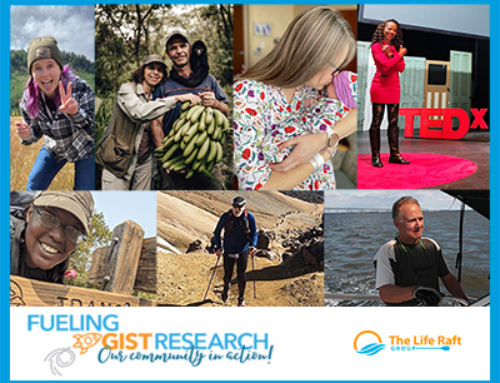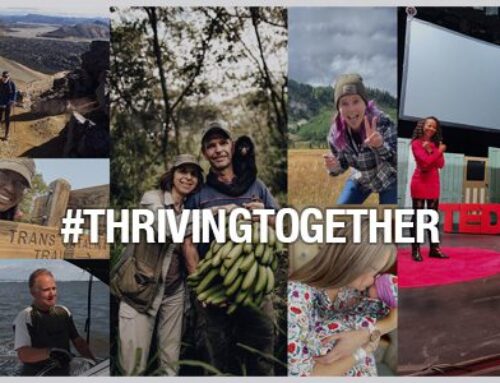 By Berenice Carbajal-López, Fundación GIST México
By Berenice Carbajal-López, Fundación GIST México
Nutritional status plays a very important role in the prevention and treatment of contagious and non-contagious diseases. In the frame of a health contingency, the use of strategies that strengthen our nutritional status and immune system is essential. No one knows how long these virus security measures will take, but there is a perfect time to protect and improve your health while practicing social distancing.1, 2
A healthy diet is especially important to keep your immune system in top condition. Here are some steps you can take to eat healthy in the COVID-19.1, 3
1. Minimize your visits to the supermarket during the pandemic and eat healthy.
2. Clean your hands and the handle of the shopping cart at the grocery store.
3. Plan what you are going to buy. Make a shopping list, taking into account what your family likes and cooking methods.
4. Include your children in meal planning, preparation, and cleaning.
5. Limit impulse purchases of treats like chips, soda, cookies, ice cream, because they are high in empty calories and increase your grocery bill.
6. Consider low-cost alternatives. For example, instead of buying pre-made hummus, make your own by pureeing a drained can of chickpeas.
7. Check the expiration date of the products before purchasing.
8. Try some new recipes. Have you ever made homemade pizza, roasted a whole chicken, or cooked meatballs from scratch? There are many great recipes on the internet! Look for those that need only a few ingredients and use common kitchen tools.
9. Keep in mind the basic foods that we must have at home to achieve a balanced diet that will keep our bodies strong.
Some options are:2, 3
✔ Cereals: Corn tortillas, whole-grain English muffins, bagels, wraps, frozen whole wheat waffles.
✔ Grains: Raw oatmeal, quick-cook pasta, frozen brown rice, couscous.
✔ Fruits: Fresh and/or dried, frozen, canned in water. If canned, drain and rinse before use.
✔ Vegetables: Fresh, hardy vegetables (celery, broccoli, onion, potatoes), frozen, canned low sodium, sun-dried
✔ Sauces: Tomato paste sauce, low in sodium canned sauces.
✔ Soups and broths: Canned, frozen and/or tetrapack.
✔ Milk: Fresh, canned/or tetrapack. It is necessary to keep them closed if they are not going to be used and when opened keep them in the refrigerator.
✔ Eggs: Fresh eggs, egg whites in cartons.
✔ Cheese: Grated, cubed, or crumbled hard cheese.
✔ Legumes: Canned beans (black beans, chickpeas), dried beans.
✔ Nuts and seeds: Peanut butter, canned, or dried walnuts.
✔ Meat: Frozen chicken, fish, shellfish or beef. Try a meatless meal, such as chili with beans instead of beef.
✔ Spices/condiments: Add seasonings like dried herbs and spices, vinegars, sauces, mustard, hot meat, lemon, lemon juice, light dressings, honey, or Greek yogurt.
10. Arrange the cupboard and refrigerator with the FIFO method (‘first in, first out’) to avoid spoiling or using out-of-date foods.
11. Stay hydrated. Drink at least two liters a day and promote physical activity at home.
12. Practice positive stress management strategies like staying busy and engaged, enjoying your hobbies, reading, cooking, making videos with your kids, starting a scrapbook, helping your kids with their virtual school assignments, and keeping in touch with family members.
13. Share meals together with your family at the table. Enjoy the moment!
14. Think positive! Mindset is vital to overcome this pandemic in a physically and mentally healthy way.
Remember Your Vitamins!
References:
- American Society For Nutrition. ASPEN Making Health and Nutrition a Priority During the Coronavirus (COVID-19) Pandemic.(2020) March.
- Arends J, Baracos V, Bertz H, Bozzetti F, Calder PC, Deutz N EP, & McMillan DC. ESPEN expert group recommendations for action against cancer-related malnutrition. Clinical nutrition, (2017). 36(5), 1187-1196.
- Medical Gazette. Feeding in times of the coronavirus. March 18, from Gaceta Medica (2020).
[/fusion_separator
Other articles on Nutrition during the COVID-19 Pandemic:
Nutrition and Cancer Prevention Strategy Amidst the COVID-19 Pandemic







